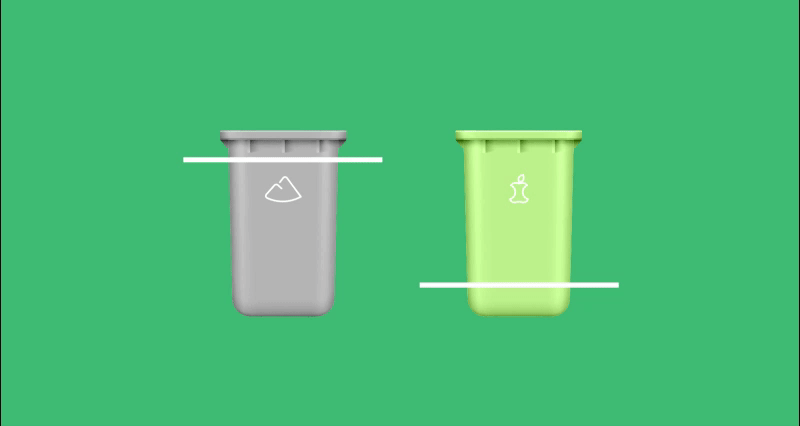Do you know that nearly 1.3 billion tons of food are lost or wasted every year, according to the UNEP (United Nations Environmental Program)? An estimated 8 to 10 percent of global greenhouse gas emissions are associated with unconsumed food. Moreover, the need to reduce food waste is becoming a pressing issue, as world hunger has risen significantly since the COVID-19 pandemic.
This article will discuss the importance of composting food waste and what it can do for a facility’s sustainability and smart waste management.
The Importance of Composting Food Waste
Over the years, using compost or organic fertilizers in agriculture was replaced by the overuse of pesticides and chemical fertilizers. This dependence gave rise to several issues, including soil deterioration, excess or deficiency of specific nutrients, insect outbreaks, and soil solidification. In addition, our food system and daily food habits inevitably produce a high amount of waste, such as food scraps and leftover food. To effectively manage food waste and combat soil issues, we must leverage the value of the organic waste we produce.

Composting and the Waste Hierarchy
The waste management hierarchy is a framework that ranks various waste management techniques based on their impact on the environment and human health. Represented as a pyramid-like structure, the hierarchy shows the best waste management technique on top (reduction) and the least preferred one (disposal) near the bottom. The five levels in the waste management hierarchy are:
• Prevention
• Reuse
• Recycling
• Recovery
• Disposal
Composting food waste is an essential part of the waste hierarchy because it not only diverts waste from landfills and recovers valuable materials but also benefits the waste management system. Organic waste is more manageable than other materials like paper, plastic, and glass. There are multiple ways to deal with organic waste that make it possible to avoid the disposal stage altogether, and the best method is composting.
Proper composting also minimizes our dependence on chemical fertilizers while improving soil fertility and water retention. Smart waste management through composting programs is a no-brainer for facilities.
How Composting Helps Food Waste Reduction Initiatives
A study by the food and Agriculture Organization (FAO) of the United Nations reports that nearly one-third of the food produced globally is wasted. Composting helps food waste reduction initiatives by converting organic food waste into a nutrient-rich soil amendment. Food waste instead becomes a valuable asset to our agricultural lands and gardens. Compost also helps improve soil fertility and health and reduces water consumption and the need for chemical fertilizers.
Additionally, composting helps reduce the amount of food waste in landfills. When food waste decomposes in landfills, it produces methane — a potent greenhouse gas. Composting diverts food waste from landfills, reducing the amount of methane gas.

Composting As Part of a Facility’s Waste Diversion
Composting can help a facility’s waste diversion efforts by preventing organic waste like food scraps and paper products from ending up in landfills.
On the other hand, improper waste sorting can make composting difficult or even impossible for facilities. It gives rise to excessive contamination, which makes it difficult to recycle or compost effectively. Composting food waste can help facilities divert a significant amount of waste and reduce their overall carbon footprint. Facilities can also achieve more circularity by using the compost they produce in landscaping and gardening, and they can leverage composting programs to educate their visitors about food waste.
Smart waste management technology like TrashBot can help facilities reduce waste contamination and replace landfill materials with compostable ones. A pilot case study revealed that TrashBot helped a Los Angeles hospital reduce contamination within their recycling and compost streams by 95% and brought the diversion rates up to 50% by introducing compostable alternatives.
Composting and the Environment
The UNEP wildlife Chief, Doreen Robinson, says:
“Our relationship with nature is unbalanced. Humans are always taking and discarding, and nature is continuously giving more. We need to apply circular thinking in which life is sustained and things are continuously repurposed.” — Doreen Robinson
To achieve a circular economy and drive widespread change, we must follow the waste hierarchy and consider how we can prevent, reuse, recycle, or recover materials before discarding them.
Composting food waste is a highly underrated yet integral part of smart waste management. It also offers considerable environmental impacts. It minimizes food waste, leading to reduced greenhouse gas emissions. It also makes facilities and urban areas more resilient to the effects of climate change. Composting can cut down on the water needed to grow food and improve soil health. Through implementing composting programs, facilities can improve their diversion, reduce their footprint, and get closer to achieving smart waste management.

